Vice President Kamala Harris on the Future of Mental Wellness—and How We Get There
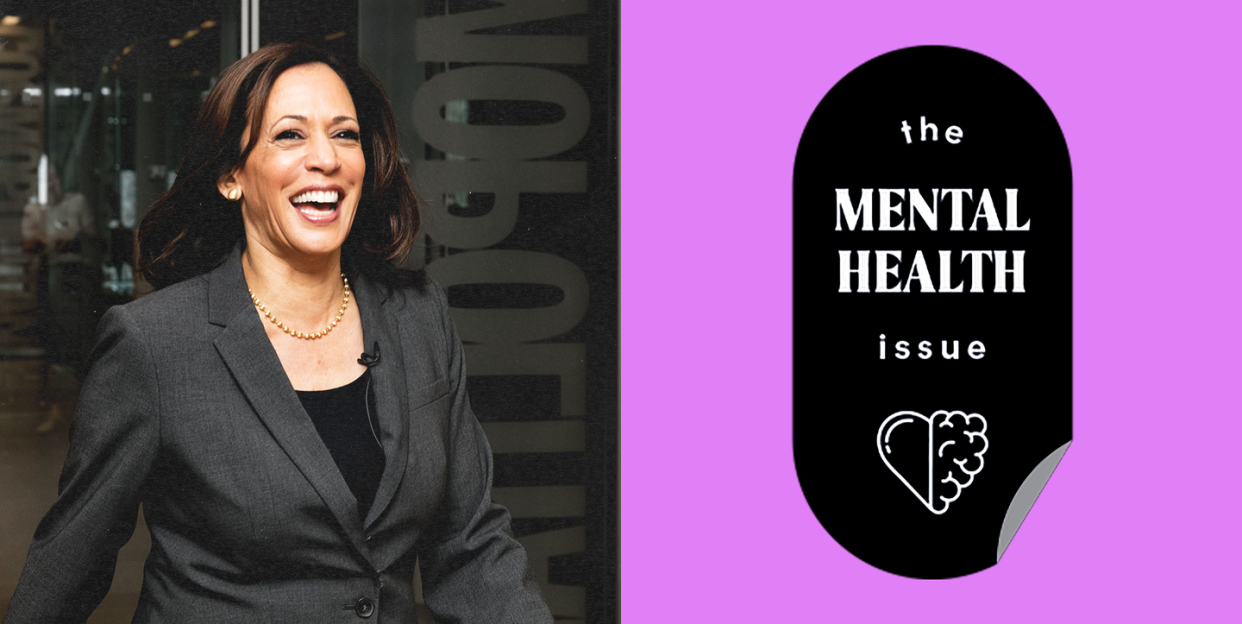
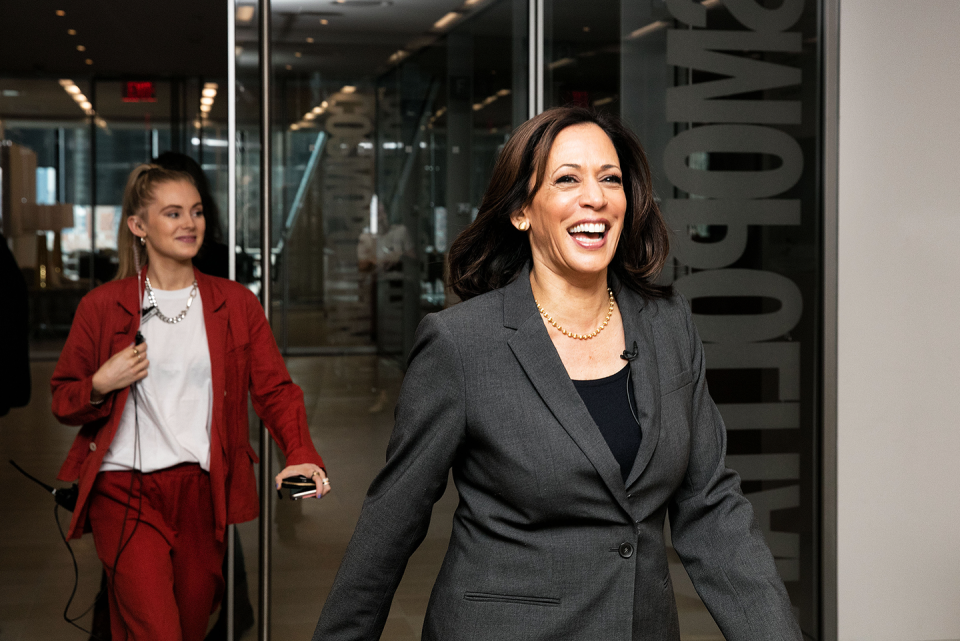
Cosmo has written about women’s mental health—in some ways radically—for decades, but we’ve never done an entire Mental Health issue before. Maybe that’s radical too, but we don’t think so.
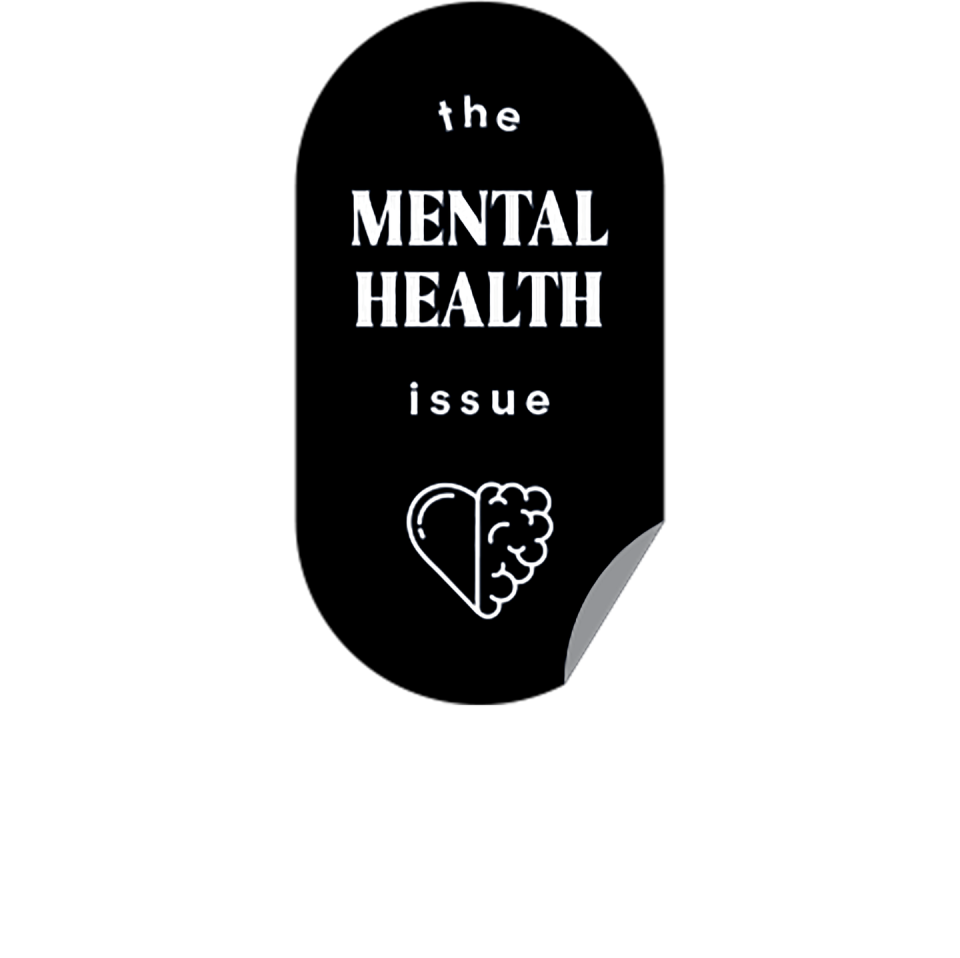
After all, Gen Z is more likely than any prior generation to report having poor mental health, and to quote Vice President Kamala Harris, “a key part of transforming how we understand and address mental health includes how we talk about mental health.” My team and I believe we should talk about it loudly, honestly, and empathetically, because while our mental health is deeply individual, it’s also increasingly universal. That’s why, on the heels of the gov-ernment’s 988 Suicide & Crisis Lifeline launch, I reached out to the vice president to talk about her quest—our communal quest—for a mentally healthier world.
You’ve spoken before about how this country is in a mental health crisis. We hear the same from our readers all the time: Young Americans are stressed.
I believe many people in our nation are struggling with their mental health. And too often, those who experience mental health challenges are stigmatized and treated differently. We must create an environment that promotes mental wellness and a safe place to discuss challenges. We must make it easier for people to get care, no matter where they live. For too long, when we as a society have thought about health care, we have operated as though the body starts from the neck down. But we need to care for people as whole people—and that includes taking care of their mental health and well-being.
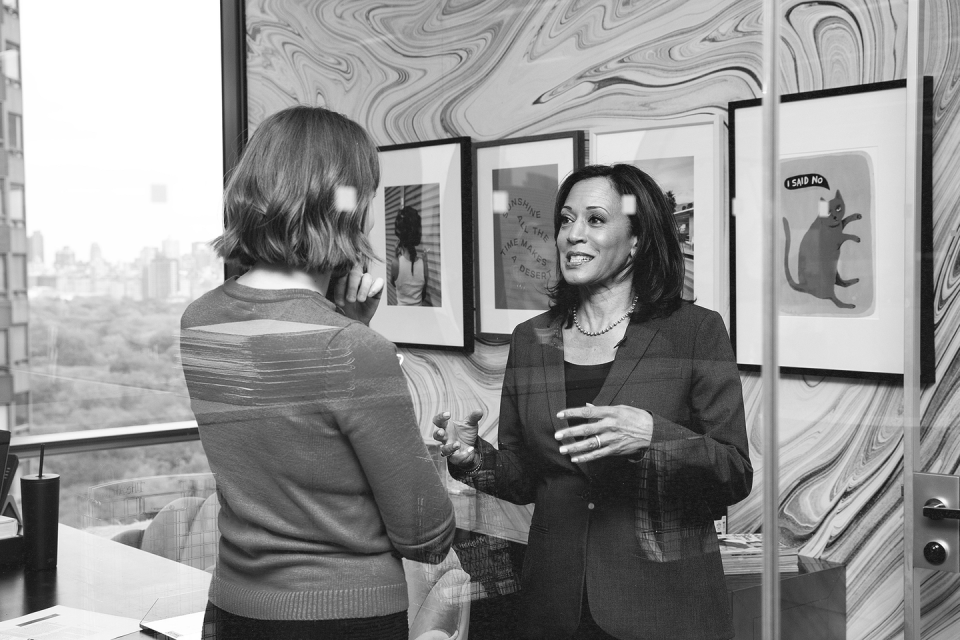
What is the Biden administration doing to help build this better world?
President Biden and I recognize that we have a role of leadership in this fight. That’s why we have made it a priority to expand mental health care for all Americans.
Our strategy is focused on three areas: first, helping attract more behavioral health specialists to underserved communities. Second, connecting Americans to the care they need. And third, creating healthy environments for Americans to talk about mental health.
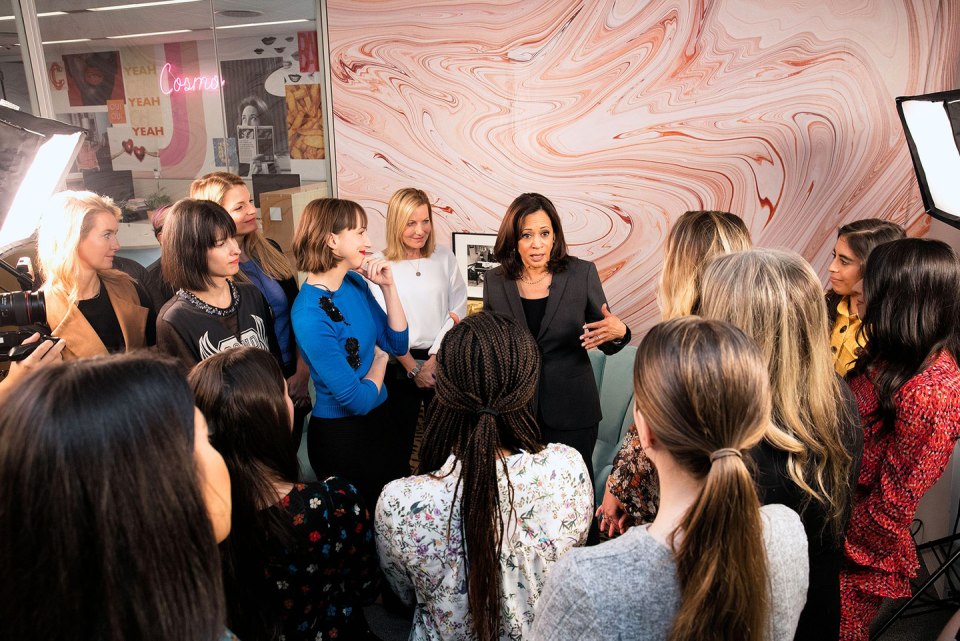
Our administration has invested more than $5 billion to expand access to mental health and substance use services through the American Rescue Plan (ARP), the historic legislation that President Biden and I passed into law after we took office, which has helped power our nation’s economic recovery.

President Biden also called for a doubling of the number of school-based mental health professionals in the U.S., and school districts are estimated to use an additional $2 billion in funds from ARP to hire more school psychologists, counselors, and other mental health professionals in K–12 schools. And thanks to the Bipartisan Safer Communities Act signed by President Biden in June, an additional $1.7 billion for mental health is headed to our schools and communities. Finally, the omnibus spending bill that the president signed in March included more than $16 billion to strengthen mental and behavioral health, and our proposed 2023 fiscal year budget includes nearly $130 billion of funding geared toward mental and behavioral health over the course of 10 years. There’s more work to do, but I’m proud of our progress.
A lot of the efforts you’ve mentioned center the well-being of children. Tell me the thinking behind that.
I’ve seen firsthand throughout my career—launching the California Bureau of Children’s Justice when I was the state’s attorney general; helping to create the Center for Youth Wellness when I was the district attorney of San Francisco—how undiagnosed and untreated trauma can lead to serious mental health challenges disproportionately harming children. Our young leaders are counting on us. We must care for their mental health and invest in their potential.
You’ve also just launched the 988 Suicide & Crisis Lifeline, which is a more immediate step toward getting urgent mental health care to everyone everywhere. How does it work?
At any time of the day or night, any person in our nation can call 988 to speak with a trained counselor. The 988 Suicide & Crisis Lifeline is totally confidential and free to use. No matter who you are, and no matter where you live, someone will be there for you.
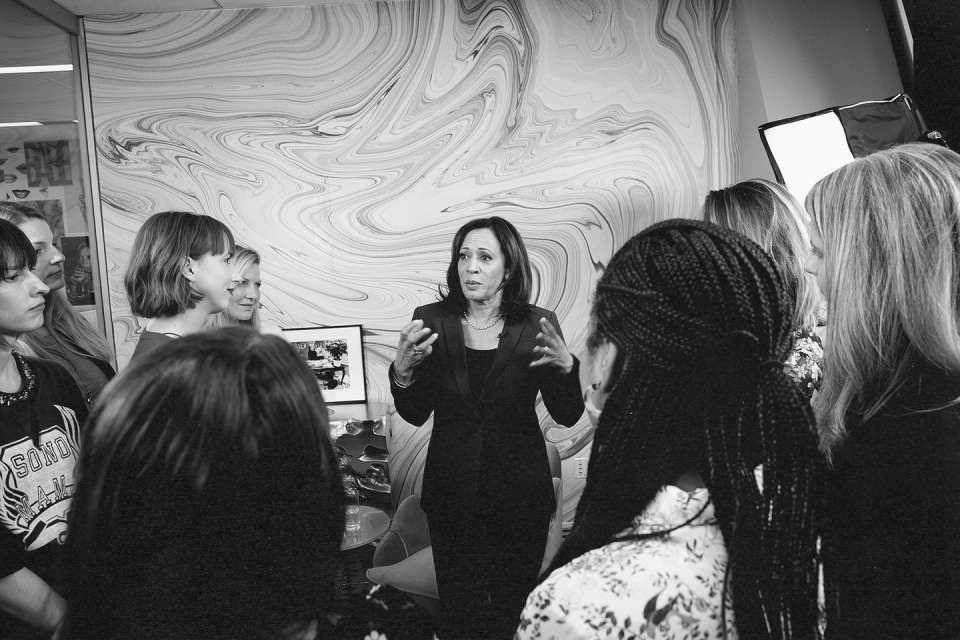
We are investing in building a robust crisis services system that includes not only someone to call but someone to respond and somewhere to go. We will keep strengthening it and making sure it works well for everyone. For people in immediate crisis, 988 offers a pathway to help.
What do you do for your own mental health, especially in your high-stress position?
For me, I work out every morning. No matter how much sleep I’ve had, I find half an hour a day to use the elliptical. It helps get me going for the rest of my day. Find what works for you. Try to surround yourself with family and friends who will be there to cheer you on but will also be there in times you’re feeling down. Even in those darkest moments, know that it will get better.
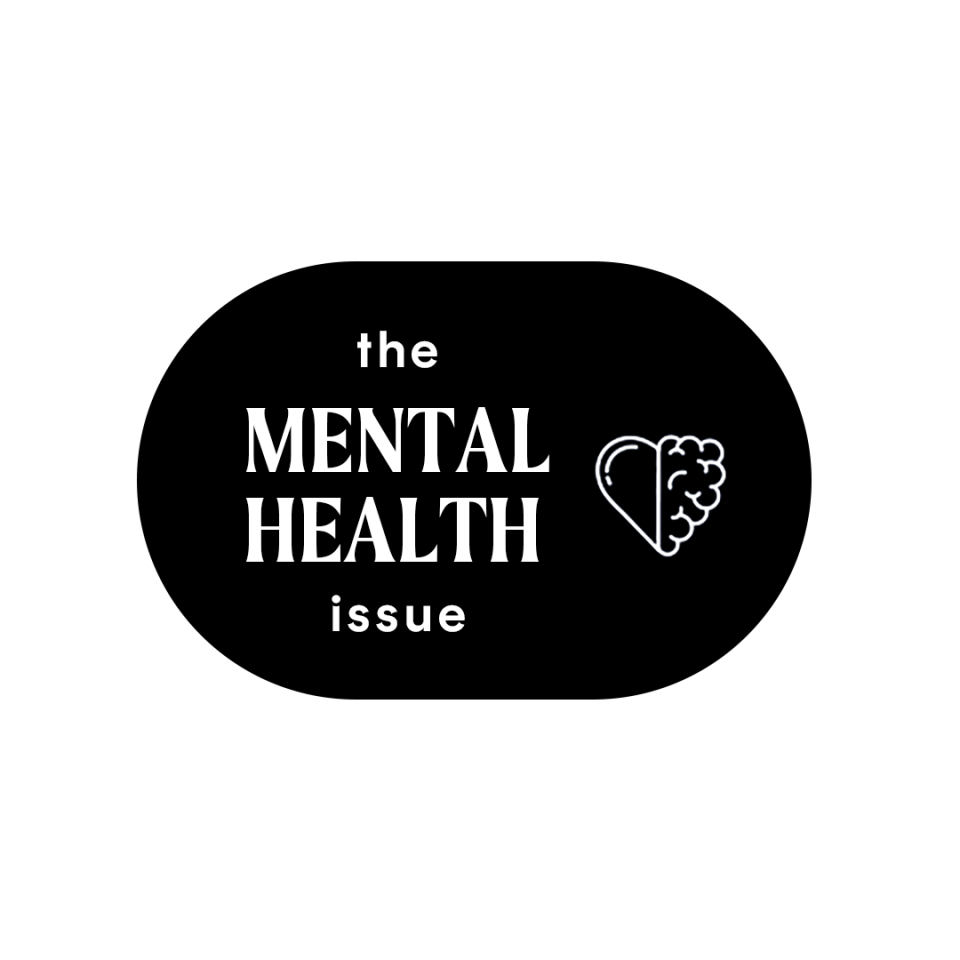
You Might Also Like